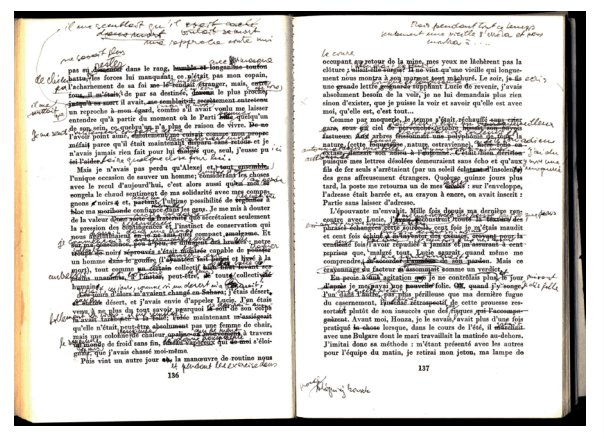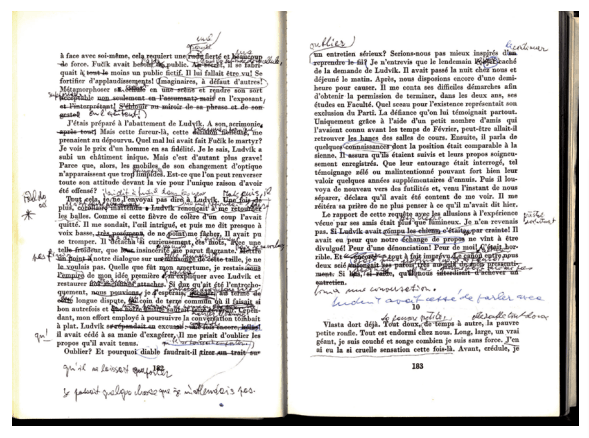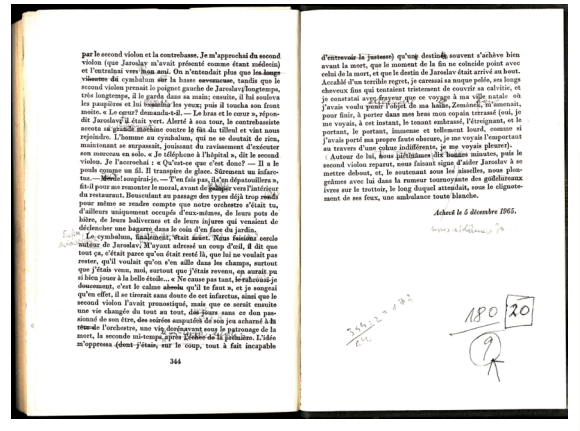
The publisher Československý spisovatel (Czechoslovak Author) brought out Kundera’s first novel The Joke in 1967. Two more editions followed in the two subsequent years. Kundera won the Czechoslovak Writers’ Association Prize for it in 1968. The publication of this novel in France in 1968 guaranteed his entry onto the stage of world literature. Over time, The Joke has been translated into 37 languages, including among others Farsi and Sinhala. The majority of editions have again been in Spanish, as well as being very often published in French, Italian, German, and Chinese.
I recall The Joke. In 1985, eighteen years after it was first published, I ended the “author’s note” for its new French edition with the words: “Today, the cud-chewers of topicality have long forgotten the Prague Spring and the Russian invasion. Thanks to this forgetfulness, paradoxically, The Joke can once again become what it always wanted to be: a novel and nothing but a novel.”
MK in a note for NLB



Even in his debut novel, The Joke, Milan Kundera remained what he had been: a tragicomic of the individual's activity in the midst of the world’s activity, and with it an expert on the disillusionment, destruction and problematization of the values on which both contemporary man and contemporary society build their lives. (…) Through The Joke, Milan Kundera wrote his “mountain of reason”; only the rationalist destroyer can clear the field of the weeds of illusion, only the rationalist critic can seduce the realm of realized false consciousness, and only the rationalist skeptic can feel the sadness of the practical powerlessness of ratio, of its irreplaceability, of its sparkling analyticity, which remains denied harmony.
Kundera’s The Joke is the most mature critique of the cult era in our prose, but it would be a misunderstanding of its semantic construction if we saw in it only a reconstruction of the 1950s, only the unmasking of contemporary illusions. Apart from its obvious historicity, this excellent novel has another dimension: it is a human drama, which also has its eternal constants. (…) The anti-illusionist atmosphere of the time helped him to co-construct the novel’s archly ironic meaning and to set the great human concern about the degradation of meaning against absurdity and indifference.
Kundera’s novel jokes neither with the times nor with literature. It experiments with them through the inventiveness of a free creative spirit - but this freedom is an expression of literature’s critical responsibility to the times, its responsibility to search for its meaning.
It is a hellish tale whose cynicism risks smashing its head on the pitfalls of hideousness at every turn (...) The Joke is a novel of human souls, alienated from the truth to the point of utter frustration, plundered, robbed of their moral glory by self-delusion and lies to the last thread of humanity.
The Joke is Milan Kundera’s first novel, of which Salman Rushdie wrote ‘It is impossible to do justice here to the subtleties, comedy and wisdom of this very beautiful novel. The author of The Joke is clearly one of the best to be found anywhere.’ This is the Faber Modern Classics edition with an introduction by Robert McCrum.
Faber and Faber, online
Source: National Film Archive (profile on Youtube)
The 1968 film The Joke is an adaptation of Milan Kundera’s novel of the same name. It was directed by Jaromil Jireš, one of the key figures of the Czech New Wave. The Joke tells the story of Ludvík Jahn, a man trying to avenge the injustice done to him in his youth. Because of a light-hearted prank, Jahn is expelled from university and from the Communist Party of Czechoslovakia, which fundamentally changes his life. The film, like the book, deals with themes such as irony, revenge, and the tragicomic nature of human fate, all in the context of political repression in communist Czechoslovakia. Thanks to its strong visual and narrative component, The Joke is one of the classics of Czech filmmaking and is considered an important contribution to the history of world cinema. In August 1971, the film was placed in a vault by Husák's regime. It was not re-released until August 1990.
The Czechoslovak New Wave
Czechoslovak New Wave refers to the generation of Czechoslovak film directors and screenwriters who began working in the 1960s.
The movement was influenced by various film movements such as Free Cinema, French New Wave, Cinéma verité, and the American Underground, which Czech filmmakers absorbed and interpreted in their own way.
The Czech New Wave represented an important shift in Czechoslovak cinema and created an auteur film style that differed significantly from the official socialist realism of the time.
In addition to Jaromil Jireš, this includes, e.g. Miloš Forman, Jiří Menzel, Věra Chytilová, Ivan Passer, Jaroslav Papoušek, Antonín Máša, Juraj Herz, Juraj Jakubisko, Dušan Hanák, and Ester Krumbachová.



The Milan Kundera Library is funded by the South Moravian Region and the City of Brno.
© 2024 Moravian Library in Brno